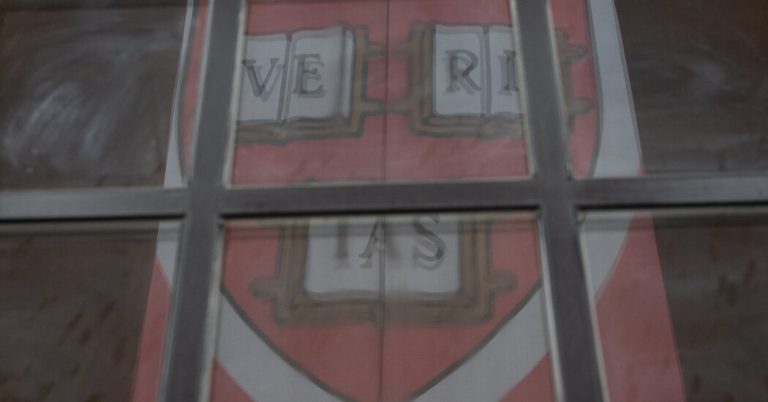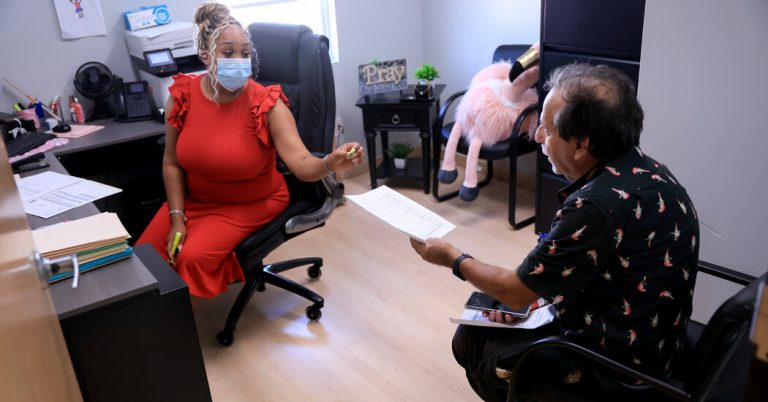Many years ago, before we had children, an old family friend who was a therapist offered a gentle bit of advice to my partner, Ian, who was wrestling with his future after leaving the Peace Corps early: Don’t look for every moment to be a 10, she told him. Sometimes you have to celebrate the fours, fives and sixes.
When Ian repeated it to me, we laughed. It felt like settling, if not an outright failure, not to seek something better. Up to that point we had always looked beyond where we stood to other, brighter moments. It would become a bit of a family joke between us: If something went awry we’d say, “Can you celebrate a one or a two?”
I’m no longer laughing. I’ve come to see the wisdom in not just seeking but finding joy in the mundane, in the unremarkable, even in the frankly boring, particularly in this era of global — and personal — illness. I realize I am far from unique in my efforts to appreciate the moment. It is the essence of mindfulness, the stuff of my (often failed) efforts to meditate. But it has allowed me to stand still when I might otherwise never stop moving.
In early June, our daughter Orli, 13, came home to Washington, D.C., from a long-anticipated school trip to New York City. She’d been looking forward to the trip; it had kept her going through lung surgery to remove a cancerous lesion, her third such procedure since she received a liver transplant to treat liver cancer in March 2020. That surgery was followed by a hospital stay with an arduous recovery. We briefly had oxygen tanks in our home; we loathed their presence.
She was now pink-cheeked and robust, and her hair had grown long enough to pull back. She and I had spent days running around Manhattan together, going for late-night ramen, shopping for things we didn’t need. Orli and her sister, Hana, had the chance to be extras on a television show. I had allowed myself to dream again of 10s instead of fours.
The morning after she returned from New York, Orli woke up very ill. Ten days later, neurosurgeons removed a malignant brain tumor. Each moment in the time leading up to the surgery seemed impossible to absorb: the bewildering change in her medical status, the physical setbacks, the gravity of our situation. The right side of Orli’s body simply ceased to work; she no longer rose from her bed unassisted. We orchestrated a rare visit to the I.C.U. for her sister. One afternoon, Ian and I sat outside in the hospital’s “healing garden,” not quite able to process what number we were hoping for and how it had shifted so quickly.
Then the scale realigned once more. Orli’s recovery from brain surgery was rapid. Two weeks after she was released, she was on a bicycle in Menemsha on Martha’s Vineyard, at a friend’s borrowed home, an unchanged 1920s clapboard house that offered a glimpse of the sea, a breeze off the water. She began reading like she had never read before, swallowing books whole; she got on a surfboard again.
Each of those precious days was, indeed, a 10, but it was the fours and fives I began to crave: just lying on her bed, talking, watching her eat pasta and ask for more, seeing her swim. Even the ones and twos — when our car broke down and we needed to find a tow truck off island — felt like wins. What is a transportation problem but a manageable hassle, really? At least we were together, and not in a hospital.
All summer — through subsequent radiation, tumor marker numbers that stubbornly refused to fall, even a nightmarish I.C.U. stint in another resort town — I tried to live in what I began to think of as the hyper present. It wasn’t that I no longer worried about what might happen in a month, or two weeks, or next year; far from it. It was that I could only really focus on the minute I was in.
After so many trips to intensive care, dashed plans and other disappointments, the future felt too full of uncertainty to sufficiently map out, and worrying just undermined moments that were calm. I began to focus, in a way I never had before, on this evening’s light, the feel of the sand today, the walk to the pier, the taste of the afternoon’s ice cream.
Not that I didn’t attempt to orchestrate experiences. I still dreamed big: dragging us all to Maine on a moment’s notice, knowing that seeing our friends — and the expanse of the sea — would revive us, insisting we attend a cousin’s wedding in the Berkshires, creating elaborate dinners al fresco.
Hyper presentness can have its drawbacks. I find it hard to plan more than a week in advance. I fear lost moments to an unreasonable degree; I can summon panic by missing the girls’ bedtime, knowing that a day has passed and I won’t get it back.
But being insistently present means that each time Orli and I fight — and we still fight; she’s 13, after all — I cannot hold the anger. I have asked her sister, who turned 9 this summer, to try to do the same. Sometimes it even works. And so I lie there each night chatting with Orli and Hana; sometimes about something important, often not. But before I let myself worry about work or dishes or even future travel, I try to just be. Just be here, I tell myself, like a self-help app, on repeat.
This time of year is good for that.
Of the many, many hours of prayers offered during the Rosh Hashana and Yom Kippur liturgy (the Jewish New Year and Day of Atonement) perhaps the most resonant text of all is the Unetaneh Tokef. In it Jews ask how each of us will receive God’s judgment this year, who will be allowed to see another year at all, and what we can do to alter our fate. The secular world knows this poem from Leonard Cohen’s interpretation, “Who by Fire.”
As a child, I tuned out the more awful potentials of the prayer’s plaintive cry — and there are many, and they are terrible, assigning an agency to God I find uncomfortable at best. Instead I was drawn to the sentences that enjoy less notoriety than the others: “Who shall be at rest and who shall wander,” the poem asks. In Hebrew, that sentence is a play on words, a single letter altering the meaning from “rest” (yanuach) to “wander” (yanuah). It goes on: “Who shall be at peace and who shall be pursued? Who will be calm and who will be tormented?” To be forced to wander another week, another month, another year is physical and also spiritual, literal and also emotional. In almost three years of cancer and pandemic, I have wondered how my family can find rest as we wander. It has been, and continues to be, I think, in these small in-between moments, in the noticing.
In early September, just after school started, Orli had a second craniotomy to remove a new brain lesion. She emerged, thankfully, without deficit. Before the week of her surgery was out, she had read another book; she told me she didn’t want to miss school play rehearsals.
It is remarkable. I am weary of her having to be remarkable. It turns out I really don’t need life to always be a 10. A nice, solid six would be nice. Tonight I’d even go with a four. We’d be very happy to rest here, at four.
Sarah Wildman is a staff editor and writer in Opinion. She is the author of “Paper Love: Searching for the Girl My Grandfather Left Behind.”
The Times is committed to publishing a diversity of letters to the editor. We’d like to hear what you think about this or any of our articles. Here are some tips. And here’s our email: letters@nytimes.com.
Follow The New York Times Opinion section on Facebook, Twitter (@NYTopinion) and Instagram.








